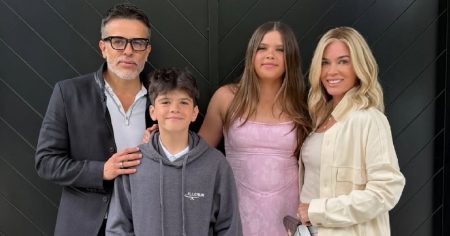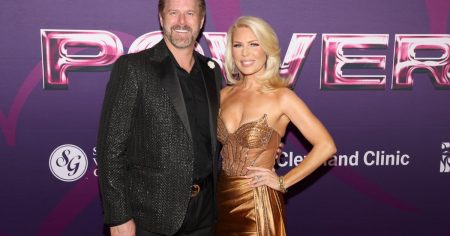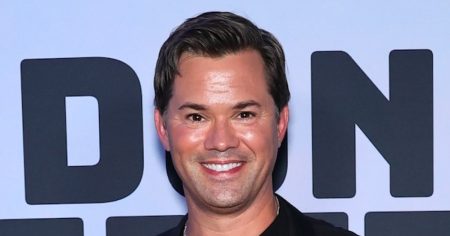Heidi Montag and Spencer Pratt, reality TV personalities known for their time on MTV’s The Hills, experienced a devastating loss in early January 2024 when their Pacific Palisades home was destroyed by a wildfire. In the aftermath of this tragedy, the couple turned to their fanbase for support, both emotional and financial, sparking both an outpouring of sympathy and a wave of criticism.
Montag’s 2010 album, Superficial, which had largely faded into obscurity, unexpectedly surged to the top of the iTunes charts following the fire. This resurgence was attributed to fans rallying behind Montag in her time of need, purchasing and streaming the album as a way to offer financial assistance. Montag expressed overwhelming gratitude for this support, highlighting the "hope and faith and excitement" it provided amidst the darkness of their situation. The album’s sudden popularity, coinciding with its 15th anniversary, was a surprising and welcome development for the couple. Celebrities like Paris Hilton and Jhené Aiko, who also suffered losses in the wildfires, publicly celebrated Montag’s success, adding to the wave of positive attention. Even model Emily Ratajkowski joined in, sharing a TikTok video featuring Montag’s music, further amplifying the album’s renewed relevance.
While Montag’s music enjoyed a renaissance, Pratt adopted a more direct approach to soliciting financial assistance. Leveraging the power of social media, he openly appealed to his followers on platforms like TikTok, encouraging them to engage with his content to help him reach monetary incentives offered by the platform. He explicitly stated his intention to “milk” the situation for every dollar possible, a statement that drew considerable backlash. Critics accused Pratt of exploiting the tragedy for personal gain, while supporters argued he was simply being resourceful in a desperate situation. Pratt defended his actions, emphasizing the need to rebuild their lives and provide for his family after losing everything.
Beyond seeking financial aid from fans’ direct contributions, Pratt also explored alternative avenues for generating income. He discouraged viewers from watching reruns of The Hills, explaining that the couple no longer receives residuals from the show. Instead, he suggested more unconventional methods of supporting them, even humorously proposing that fans watch paint dry and tag him in videos of themselves doing so.
Further demonstrating his entrepreneurial spirit, Pratt pitched a new reality show concept to Hulu, centered around the couple rebuilding their lives after the fire. He mobilized his followers to “spam” Hulu’s social media accounts, hoping to garner the network’s attention and secure a deal for the proposed docuseries. This move further highlighted Pratt’s willingness to capitalize on their misfortune, a strategy that continued to polarize public opinion.
The response to the couple’s pleas for help was a mix of empathy and condemnation. While many fans offered genuine support, purchasing Montag’s music and engaging with Pratt’s social media content, others criticized their approach as opportunistic and insensitive. The couple’s transparency about their financial struggles and their willingness to leverage their platform for monetary gain, while potentially effective, raised ethical questions about exploiting personal tragedy for public consumption.
The story of Heidi Montag and Spencer Pratt’s post-wildfire experience became a complex narrative of loss, resilience, and the blurred lines between genuine need and calculated self-promotion in the age of social media. Their situation sparked a broader conversation about the role of online platforms in providing support during times of crisis, as well as the potential for those platforms to be used for personal gain in ways that some might deem exploitative. Whether viewed as resourceful or opportunistic, their story underscored the evolving dynamics of celebrity, fandom, and the monetization of personal hardship in the digital landscape.










